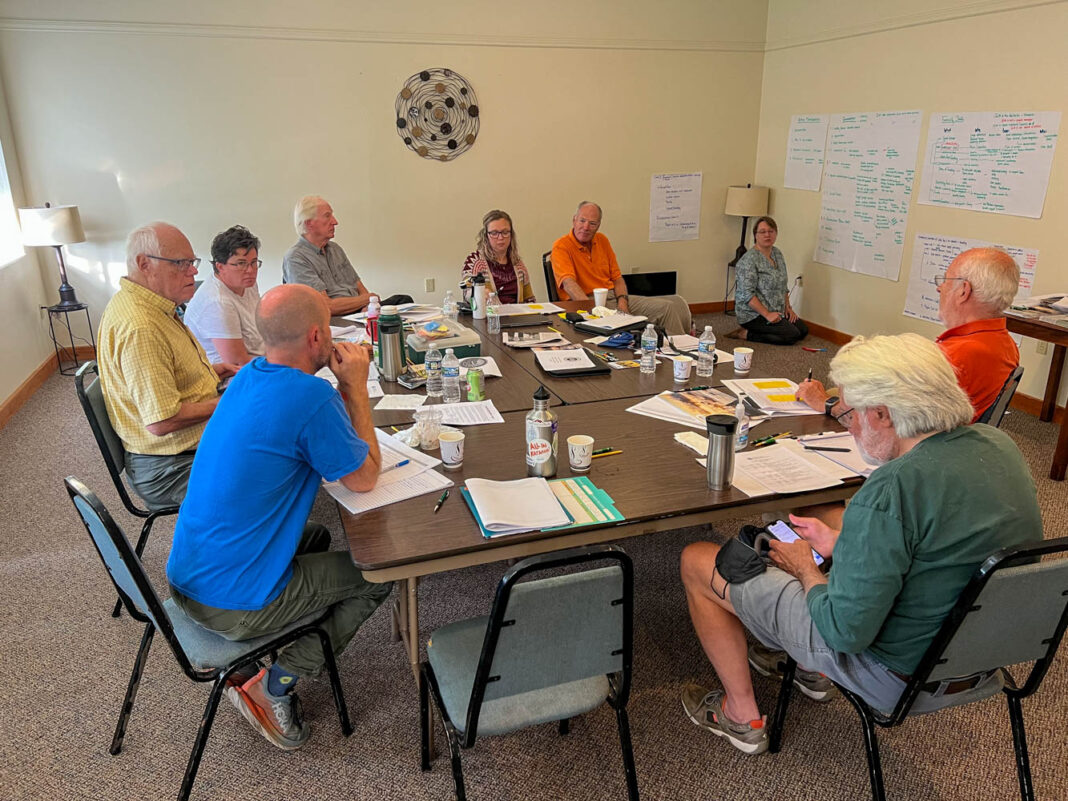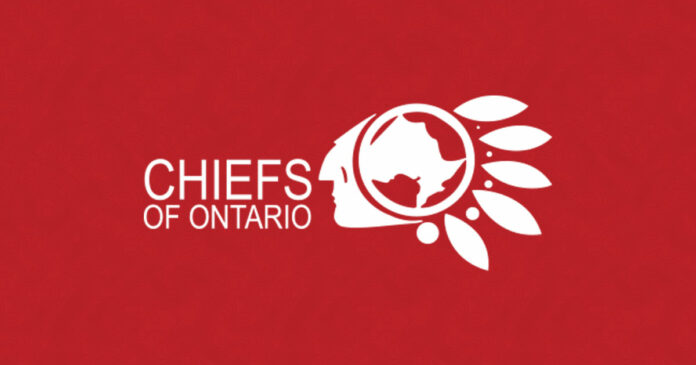CEDARVILLE, Mich.—The Steering Committee of the Great Lakes Islands Alliance (GLIA) met from October 2-5 in Cedarville, Michigan, near the Les Cheneaux islands in northern Lake Huron with a challenging task – decide how the Alliance can best support the residents of islands as they face environmental and socio-economic issues over the next 10 years.
GLIA is a voluntary, collaborative, bi-national network that brings together leaders from 20 inhabited islands across all five Great Lakes. Established in 2018, the self-imposed mission of GLIA is to “enhance relationship building, foster the exchange of information, and leverage resources to address shared challenges and embrace opportunities that benefit islands.”
The Alliance coordinates discussions across two primary focus areas: (1) environmental stewardship such as biodiversity conservation, Great Lakes water quality and water levels and waste management, and (2) socio-economic well-being, with such far-ranging topics as tourism, ferries, housing, education and local governance.
Many of the topics discussed by GLIA are also relevant to mainland communities; however, GLIA has found that the specific challenges—and their potential solutions—are different for isolated communities surrounded by water.
Now five years old, GLIA is looking to the future. The October meeting served as a leadership retreat for its steering committee plus several advisors. GLIA’s steering committee consists of islanders from each of the five Great Lakes. An outside facilitator from the Island Institute, a valued partner from Rockland, Maine, led the 10 participants through a series of visioning, brainstorming and prioritization exercises.
The purpose of the retreat was to recognize GLIA’s current operations and impact, and then decide what changes are needed to help grow the network and provide support to islands so they can sustain themselves now and into the future.
The retreat drew attention to the need for GLIA to contribute to solving problems such as the high cost of housing, inability of the hospitality industry to find employees, invading shoreline plants, loss of biodiversity, enhancing tourism, emergency preparedness, keeping young people on islands and disposal of garbage and large debris. GLIA recognizes that Great Lakes islands are on the front line of impacts from climate change and that island communities need help in building resilience in the face of many adverse changes.
Participants have learned from global events. For example, the recent disaster in Maui and the numerous forest fires in western Canada are causing islanders here to consider their own risk from forest fires or other catastrophes.
Retreat participants questioned if any of the Great Lakes islands had prevention or response plans in place in their own communities. They pondered if GLIA could serve as a resource to compile and share plans from individual islands—response plans, master plans, tourism or recreation plans, housing plans and more—or more importantly, the processes by which they are developed, funded and implemented.
After discussing how these issues play out on different islands, participants debated if and how GLIA can assist with finding and implementing solutions for 20 unique communities across the vast region. As a diffuse, virtual network, it does not have dozens of staff or a central physical office.
One outcome of the retreat was confirmation that GLIA does have a role to play and would benefit from additional capacity. This could be either through more volunteers from islands or perhaps paid employees to help with tasks such as program development, marketing and communications, fundraising and assembling and distributing island data.
Ultimately, the results of the retreat will help create a 10-year strategic plan for GLIA. This roadmap is expected to be released in early 2024.
GLIA continues to leverage its relationships with other organizations and networks around the region and world. These include the Maine Islands Coalition, a 15-island association in coastal Maine that is facilitated by the Island Institute, which was the original inspiration for GLIA.
While in Cedarville, the retreat participants met with local officials and toured facilities serving the Les Cheneaux Islands as well as Drummond Island, 45 minutes to the east.
The retreat was made possible by generous funding from the Charles Stewart Mott Foundation, managed by The Stewardship Network, a non-profit out of Ann Arbor, Michigan which serves as GLIA’s fiscal sponsor.
Membership in GLIA is free and open to all Great Lakes islanders. For information on GLIA, visit glialliance.org or contact Angela LeFevre-Welke, chair, GLIA steering committee at angel@islandairways.com or Matt Preisser, GLIA coordinator, at PreisserM@michigan.gov.
C: Work session of participants at a retreat funded by the Charles Stewart Mott Foundation held in early October at Cedarville, Michigan near the Cheneaux islands to discuss current and future issues faced by Great Lakes islands with permanent residents. Kate Tagai, kneeling, with the Island Institute of Maine, kept the meeting focused with continuous flow diagrams of ideas and priorities.
by Joe Shorthouse





